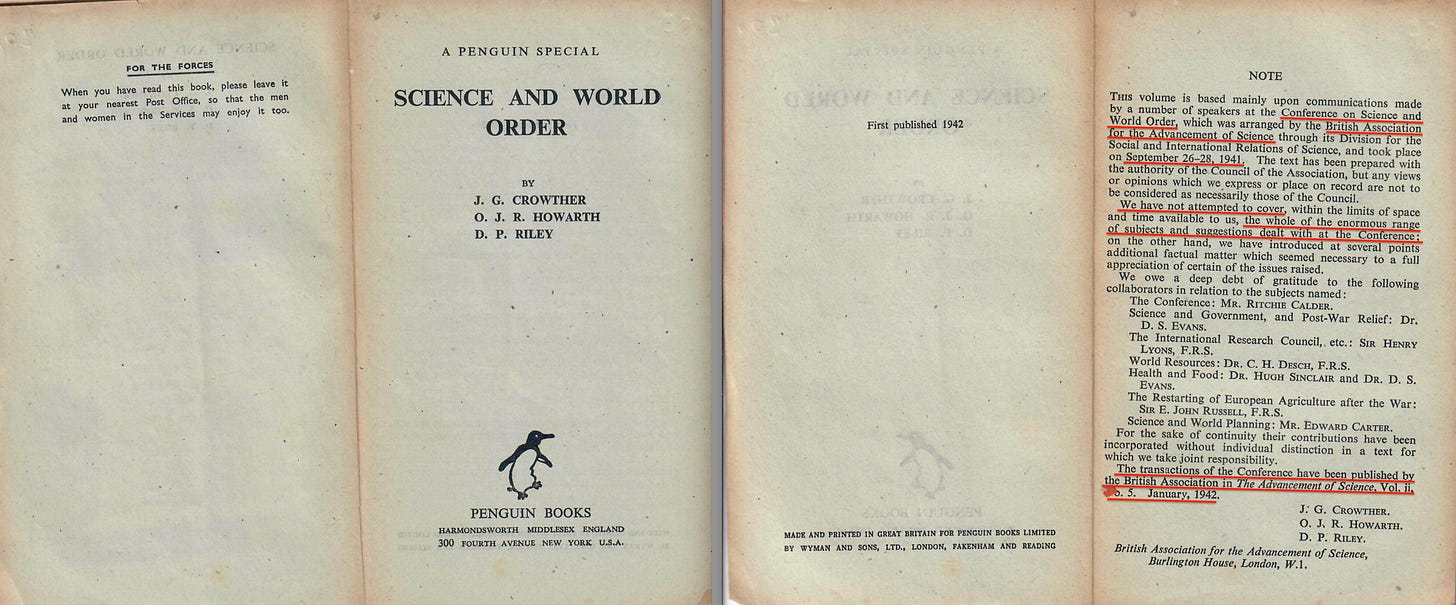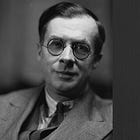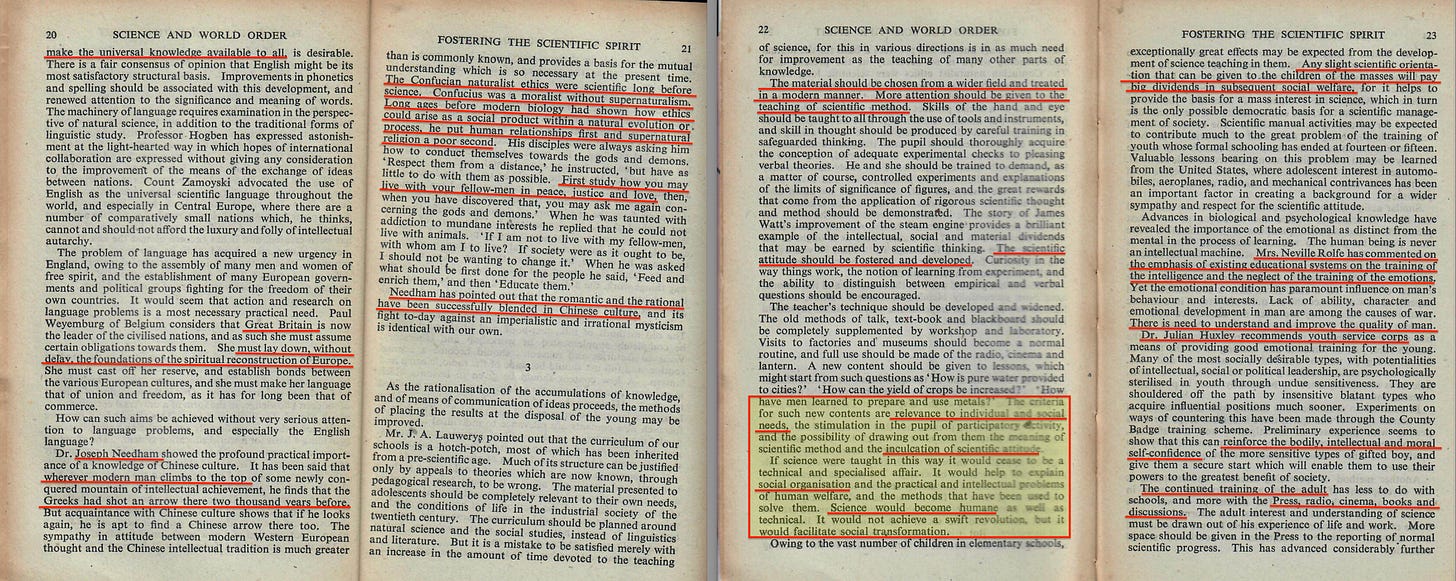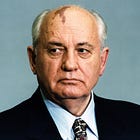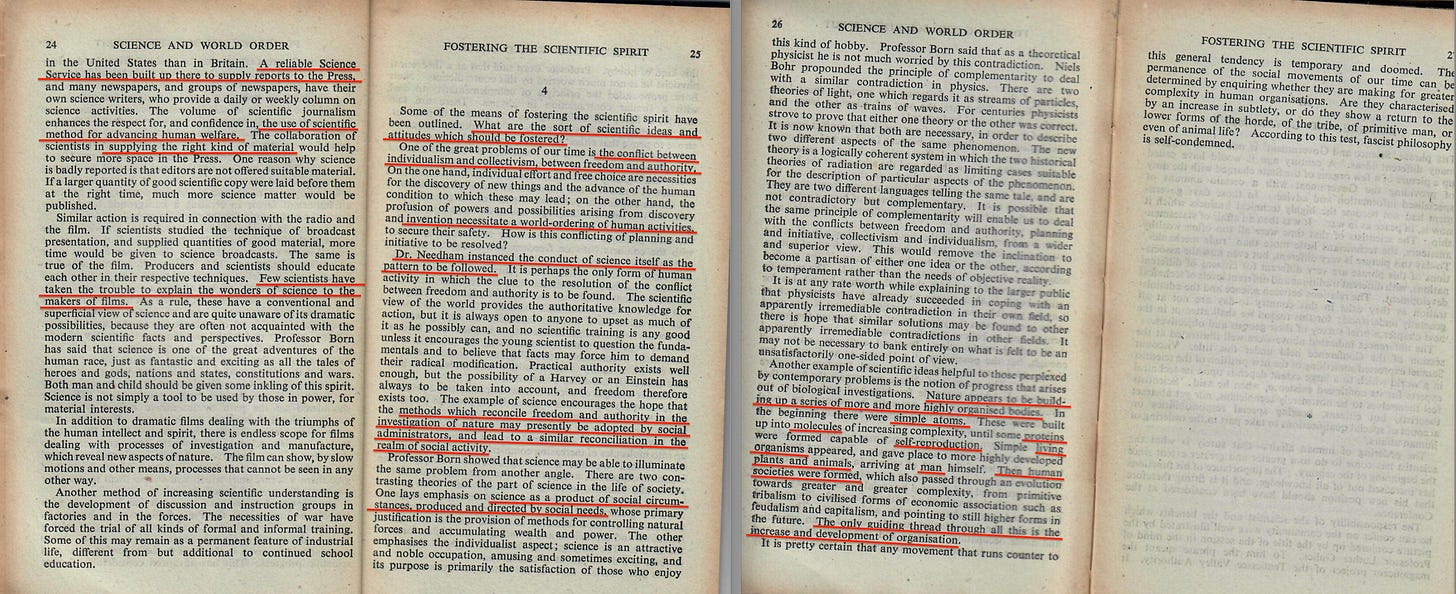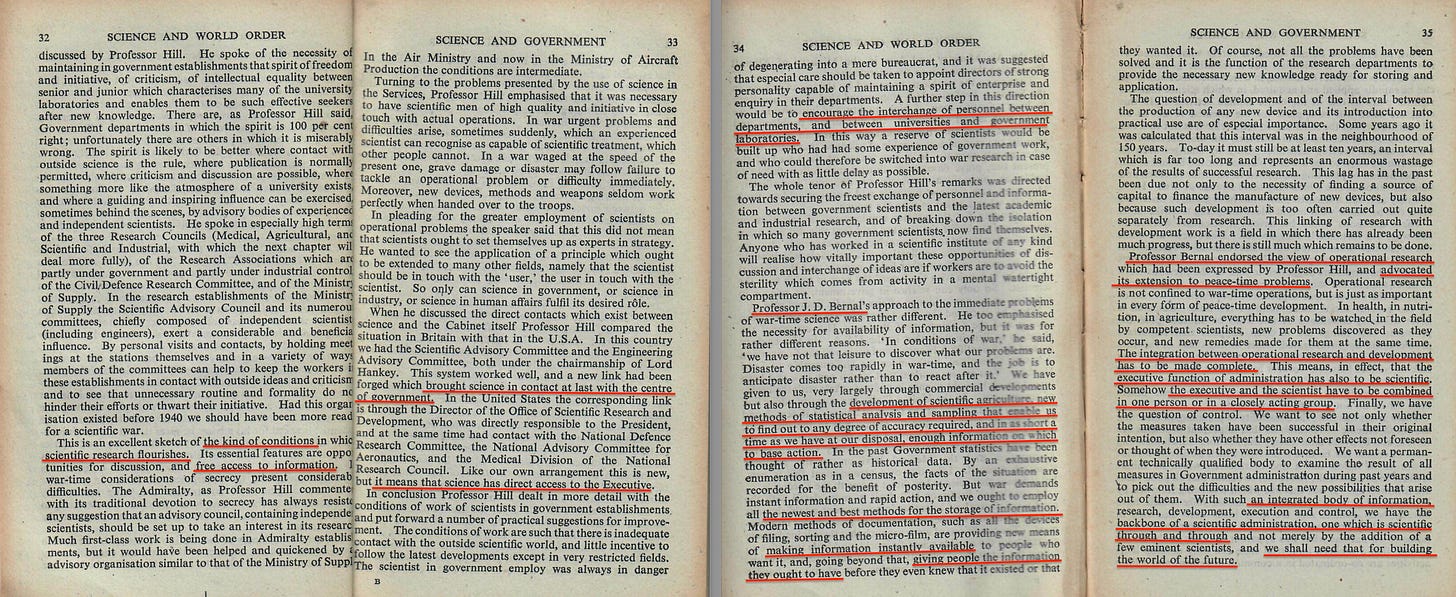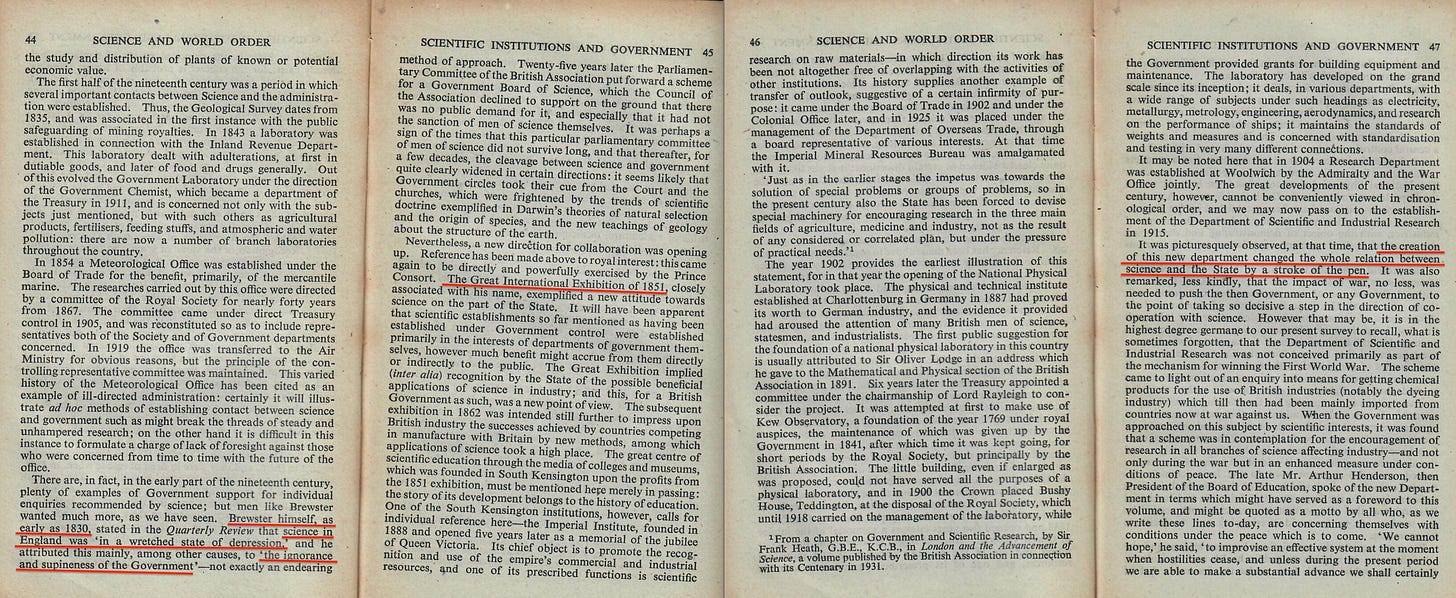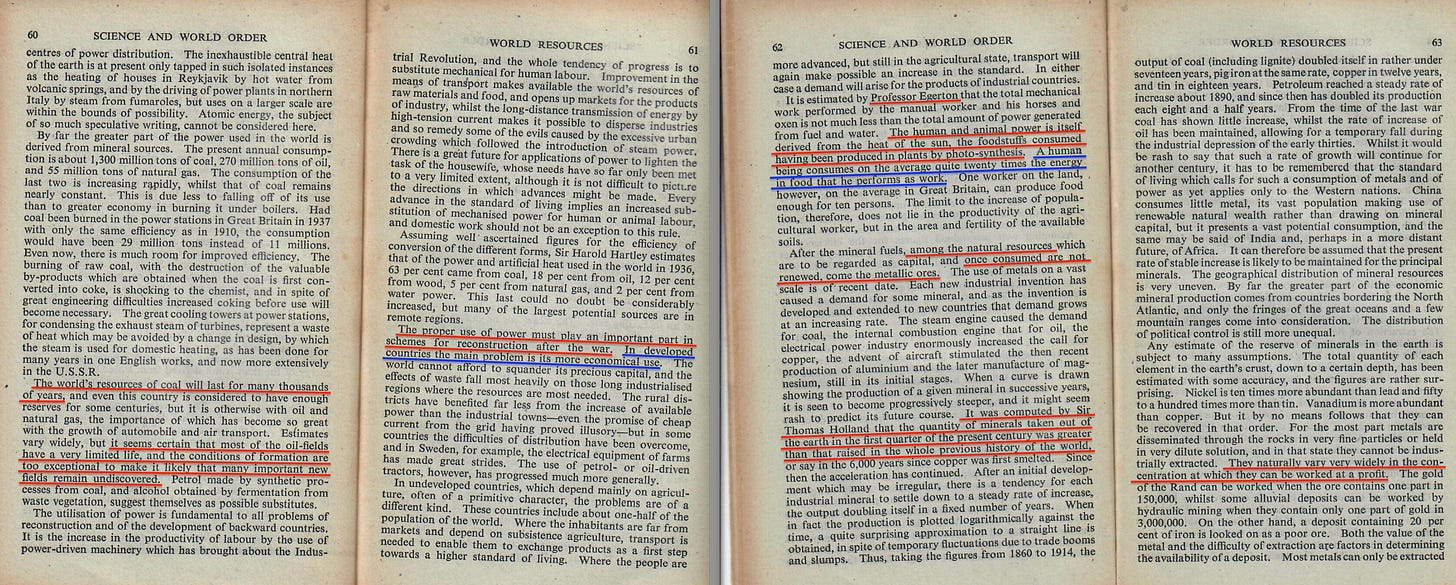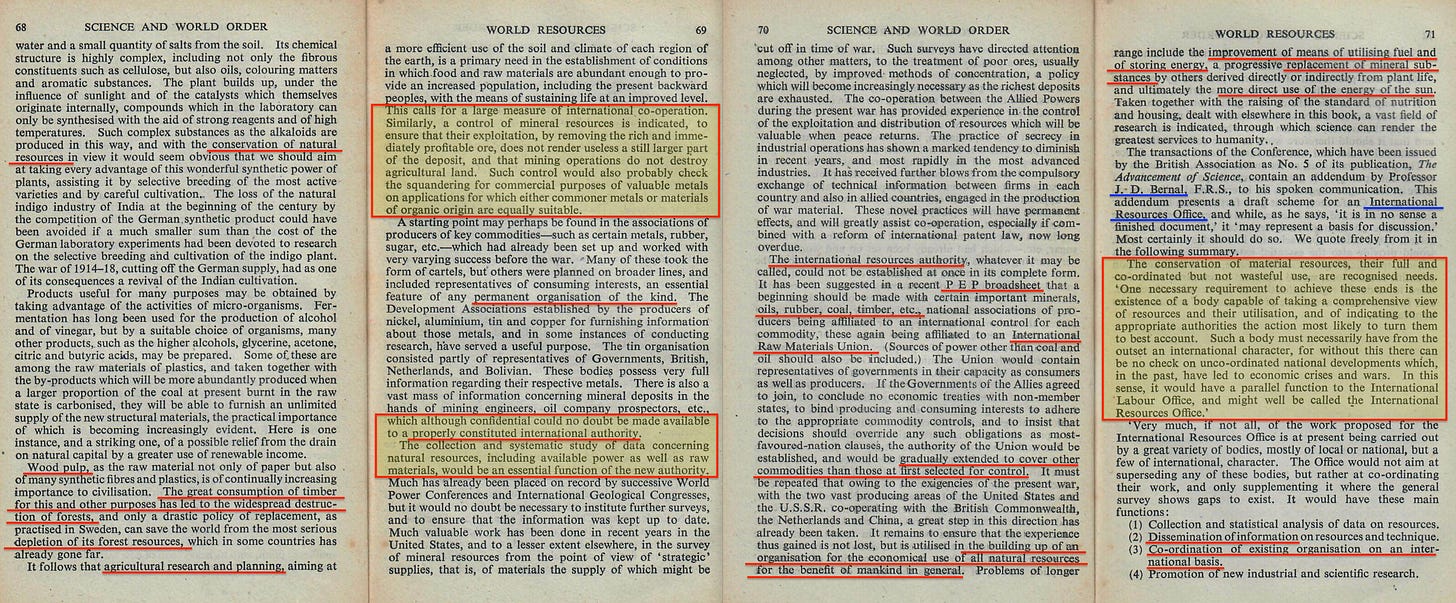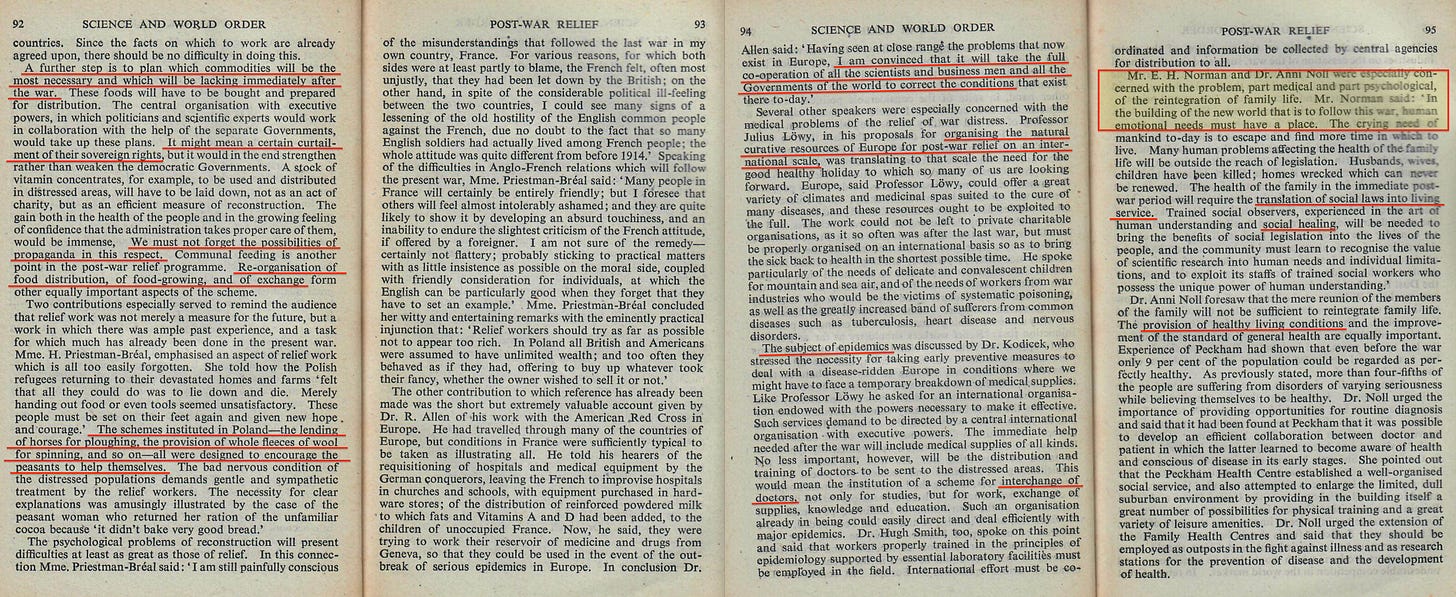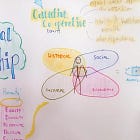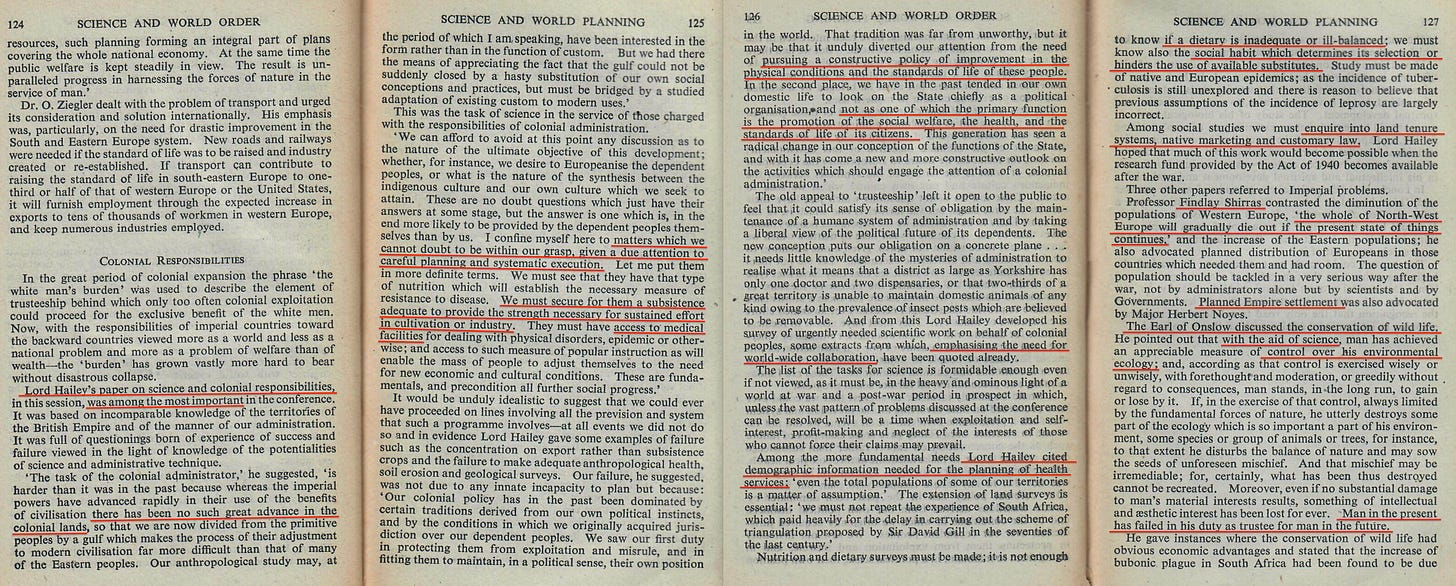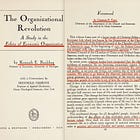‘Perhaps the most significant event they organized of this kind was the 1941 conference on Science and World Order, held in London. So unrestrained were the endorsements of Soviet communism and the role of young scientists in spreading the message of USSR-style scientific socialism and the harnessing of science for war that many delegates… denounced it as a simple political event for rallying the educated youth of Britain to the cause of communism.‘
—Heather Ellis, ‘These Heroic Days’
We crossed paths with this conference in the article on Leonard S. Woolf’s ‘International Government’. Since I have now managed to secure a copy of this otherwise elusive document, I think it’s worth spending a bit more time on it, especially considering two related events that took place around the same time. The first is a document to which the same British scientists contributed, and the second is Dumbarton Oaks—the birthplace of the United Nations. We will address these two events in a separate post.
The conference was attended by 22 nations, including the Soviet Union, and the topic of discussion was ‘the kind of world that must come out of the war’. To this end, science was seen as playing an increasingly important role—one that, according to H.G. Wells, was becoming an avalanche. Wells, of course, was a Fabian Socialist, as was Leonard S. Woolf, who penned International Government, so I can’t say I tremble with excitement at this stage.
The conference attracted substantial attention, even from Einstein and Churchill. One of its objectives was to implement the Atlantic Charter, which essentially laid the groundwork for the United Nations—setting aside its obvious parallels with the League of Nations. Notably, the document repeatedly emphasizes that Hitler is trying to ‘change the world order’. Ordinarily, you might dismiss that as ironic in this context, but when dealing with communists, it’s often a case of rubbing it in your face.
Further, John Orr and Julian Huxley were both present. Orr later founded the United Nations Food and Agriculture Organization (UNFAO), while Huxley co-founded UNESCO, the IUCN, the IEHU, and a whole range of other organizations. Henry Morgenthau, Secretary of the Treasury, also contributed—
*In order to build a better world-and that goes for our own country as well as for those abroad-we must recognise the citizens' right to have a minimum standard of food with which he can live the life of a free man.’
Science is declared pivotal to winning the war against Hitler, and to this end, scientists must unite in the fight against Nazi Germany. Moreover, science must exert a more direct influence on politics, as ‘statesmen cannot be expected to use with efficiency an instrument they do not understand’. In fact, ‘if democracy does not learn to seek guidance from and utilize science, then it will not survive.’
Science, of course, is universal, and consequently—
‘One is the provision of a digest of modern knowledge, in the form of a universal encyclopædia, which Mr. H. G. Wells calls for. This should be a growing institution, which is continually accumulating knowledge, and providing a basis for a world education system.‘
And where does this logically lead you may ask -
‘The development of a federal world language‘
Someone is scheming for a universal ‘new order’, alright, and it travels through science.
The next scientist to contribute is Joseph Needham, who co-founded UNESCO with Huxley, and further WAAS with John Orr and Einstein.
‘The Confucian naturalist ethics were scientific long before science. Confucius was a moralist without supernaturalism. Long ages before modern biology had shown how ethics could arise as a social product within a natural evolution or process, he put human relationships first and supernatural religion a poor second.‘
Incidentally, Needham was a staunch Marxist, and it was he who pushed for the inclusion of science in UNESCO’s mandate.
We are then treated to a call to make ‘science more human’ which is an implicit call for the fusion of social science. It also serves as a subtle push for organizational hierarchy, steering us toward Alexander Bogdanov’s turf. What follows next is an implied call for Social-Emotional Learning—
‘Mrs. Neville Rolfe has commented on the emphasis of existing educational systems on the training of the intelligence and the neglect of the training of the emotions.‘
And as for UNESCO’s later calls for ‘life-long learning’ -
‘The continued training of the adult has less to do with schools, and more with the press, radio, cinema, books and discussions.‘
Essentially, it’s about fusing subtle manipulation into culture—and that is precisely what WAAS and UNESCO do, inspired by Alexander Bogdanov’s Proletkult.
To this end is required -
‘A reliable Science Service has been built up there to supply reports to the Press… the use of scientific method for advancing human welfare. The collaboration of scientists in supplying the right kind of material would help to secure more space in the Press.‘
… essentially an information clearinghouse, which is a perfect place to carefully construct a narrative. But the authoritarian undertones continue -
‘What are the sort of scientific ideas and attitudes which should be fostered? One of the great problems of our time is the conflict between individualism and collectivism, between freedom and authority.‘
The conflict between individualism versus collectivism is, essentially, what they’ve been busy, corrupting this entire time, leading up to this very day.
We witness a swift return to Alexander Bogdanov’s works, specifically Tektology next -
‘… the profusion of powers and possibilities arising from discovery and invention necessitate a world-ordering of human activities to secure their safety.‘
And it’s just this incessant call for colletivisim, really, because -
‘… two contrasting theories of the part of science in the life of society. One lays emphasis on science as a product of social circumstances, produced and directed by social needs…‘
… this is nothing short of a centralised ‘common good’, to which end the public-private partnership should cooperate. It’s the same model every time; Lenin’s New Economic Policy, Deng Xiaoping’s reforms, IFDA’s Third System, Gorbachev’s Perestroika, Blair’s Third Way, Reinicke’s Trisectoral Network, or Woolf’s International Government. It’s a cooperative endavour for the common good.
Next, we’re presented with a description of the hierarchies of nature—from atom to molecule, proteins, life, man, and finally, social organization. While this is ultimately Bogdanov’s Tektology, a more recent version appears in Bertalanffy’s General Systems Theory, later hierarchically organized by Kenneth Boulding in 1956.
Next, Haldane exposes where his sympathies lie through -
‘… the Tennessee valley Authority scheme would appear as a mere incident in the giganue programmes of socialist construction of the Five Year Plans of the Soviet Union but its significance is much greater than the mere size of the project undertaken. In the soviet Union, as Professor Haldane went on to say, science plays a greater part in education, and particularly in university education, than it does in this country.‘
But, not being content with this merely spreading into education -
‘In the Soviet Union science is an integral part or government, and the planning which science implies is inseparable from that form of democratic government.‘
But let’s just hammer this home -
‘This new situation is one which demands an abandonment of the old attitude of laisser faire‘
We quite simply must adandon capitalism, full stop, and replace it with… whatever ‘democratic’ system is on offer in the Soviet Union. Cool story, bro. And Professor Hill carries on in much the same vein -
‘It is obvious, however, that scientific planning and the planning of our national resources can make many or our troubles unnecessary. By designing our houses properly the pipes need never get frozen up: by proper attenton to nutrition, to public health, and physical education sickness can be largelv avoided: by deliberate planning of public works, unemployment can be greatly reduced and the standard of living raised; by adopting a period of national service, universal for men and women alike. as the highest form of democracy, we can avoid blundering unprepared again into war, and can add a new dignity to our citizenship. Scientific planning and planning with the aid of science, are what we look forward to: planning, however, in which any new order we arrive at is fitted to our traditional freedom.‘
He systematically hits every major point of contention. What he advocates is top-down scientific socialism. What he calls for is outright communism.
‘They imply the planning of science towards definite social ends, and the establishment of a new kind of civil service trained for the technical business of government…‘
And those ‘definite social ends’ constitute our ‘common good’. Tony Blair himself told you about those, first in his 1991 article in Marxism Today, and later in ‘The Third Way’, published by the Fabian Society in 1998.
Further -
‘Professor J. D. Bernal: "We are in the middle of a complete transformation of the position of science in social affair… science has got a far wider and more thoroughgoing application to governmental affairs than had previousiv been accented or even imagined.’
The logical endpoint here is called scientific socialism.
‘That method has already broken down and is being replaced by another in which science is extending its scope throughout the government machine. In particuiar two other functions of government are being increasing permeated by science. One is in deciding the direction in which policy shall go, and the other is in carrving out the policy itself‘
The former constitutes the ‘common good’, the latter the public-private partnership. Of course, if it’s the Communist Party dictating the former, then you end up with Lenin’s New Economic Policy.
We’re then treated to a call for ‘free access to information’ to which UNESCO later added ‘that you need’. This is followed by a push to channel this information directly to the center of government, with an emphasis on the interchange of personnel—an effective means of spreading the message of scientific socialism. This is essentially why the Soviet Union always participated in science events.
And Professor J. D. Bernal goes on to emphasize—
‘We have given to us, very largely through commercial developments but also through the development of scientific agriculture new methods of statistical analysis and sampling that enable us to find out to any degree of accuracy required, and in as short a time as we have at our disposal, enough information on which to base action.‘
What Bernal is calling for is Soviet-style top-down collective farming. But he’s not quite done -
‘… we ought to employ all the newest and best methods for the storage of information. Modern methods of documentation, such as all the of filing, sorting and the micro-film, are providing new means of making information instantly available to people who want it, and, going beyond that, giving people the info they ought to have‘
Granting access to information ‘they need’… as determined by scientific socialists.
And in the event you’re still not quite convinced -
‘This, as Professor Bernal stated, is surely what is needed: not a government of scientists but a scientific government, alive to the possibilities of science, in which scientific knowledge can be rapidly applied and acquired, in which science takes its rightful place as one of the major human activities. In this structure there will be a place for the scientist to act as an administrator, but the most urgent requirement is not that our scientists should become administrators, but that our administrators should become scientific. Only by changes such as these can we hope to see a world planned for the benefit of all.‘
A world planned ‘for the benefit of all’, modeled on the Soviet Union. Then come calls to ‘eliminate unnecessary duplication’, which, in practice, removes indirect oversight—creating singular departments far easier to corrupt than the alternative. We see these calls frequently in contemporary United Nations reports, and that is essentially why this emphasis persists.
And next follows—
‘… directing the whole scheme of research so that important problems are solved, and to avoid unnecessary duplication, Such planning must of course not be of a rigid type which positively forbids a worker to follow out a line of research which he thinks is likely to be profitable, but rather so elastic that all good ideas are followed up.‘
… a call for the planning of research. Now, I’ve actually worked in R&D, and if there’s one thing you can count on, it’s that revolutionary research cannot be planned. Brilliant ideas come when you’re stuck on the M25, taking a shower, or sitting in a dentist’s waiting room—they almost never emerge from sticking a bunch of people in a room and dictating to them what to think.
The absurdity of this call is amplified by its focus on pursuing only ‘good ideas’, rather than ‘what is likely to be profitable’. But how could anyone possibly hope to comprehend the latter? And how would the former ever be considered unless filtered through a top-down panel dictating what is ‘good’ and what is not?
‘We are brought by the advancement of science face to face with the problem of planning the whole of our civilisation. It is a problem whose evasion has already led to death and misery for millions. Civilisation must be planned with the object of affording to every citizen that freedom from want and that security which we so much desire. To this end science itself must be planned if it is to form an efficient tool in the hands of the builders of that civilisation.‘
Centrally planning the whole of our civilisation. Sure, I could mock this, but there’s really nothing to add—these people are raging scientific socialists.
‘As Professor Bernal put it… if science is planned, it must be on an essentially voluntary and co-operative basis, under the effective control of scientists themselves.‘
What he asks for is no oversight. And that’s essentially what led to the International Council of Scientific Unions.
‘After this war, this will be just as true as during it. We must find a common purpose… science must cease to be the preserve of a few people‘
… and we’re back to the Third Way, the Third System, Lenin’s NEP, Reinicke’s Trisectoral Networks… finally for Dr. Negrin to close off these pages, with yet another call for ‘… the obligations of citizenship… a government of scientists.‘
The following pages really only re-emphasise the same collectivist message, before an indirect call for Leonard S Woolf’s ‘International Government’ -
‘Until recent times, the practice of science, among all forms of human activity had approached most nearly to true internationalism…‘
… and as for what should be in control -
‘… but in order that they may become so, science must take its part in world politics, while remaining free.‘
Science should drive international affairs, while remaining free of oversight and control. In other words, explicitly arrangements a scientific socialist would favour.
‘Science is in this business of world order for good or evil: for good so long as it preserves its vision unclouded and its curiosity, in whatever direction, unrestrained; for evil, only if it becomes the tool of a party, or becomes divided against itself‘
And it would be precisely said scientific socialists who’d determine what is alleged to be ‘good’ and ‘evil’.
Next, we’re treated to a chronology… which isn’t of particular importance…
… before we arrive with Haldane, once again waxing lyrical about the Soviet Union—
‘I regard the relation of the Soviet State to science as beneficial to both parties,‘
… before we progressively land with the International Research Council, launched in 1919 and later becoming the ICSU in 1931.
… before we eventually land at the International Research Council, launched in 1919 and later becoming the ICSU in 1931.
Incidentally, isn’t it remarkable how all these scientific unions emerged in 1919, coinciding with the formation of the League of Nations? Especially considering Leonard S. Woolf, in International Government, explicitly outlined how neoliberalism would, over time, lead to the gradual breakdown of borders, with power shifting from nation-states to international organizations operating outside democratic legitimacy.
The chapter concludes with the observation that these unions wasted no time and immediately set to work within the framework of the League of Nations:
‘In the inter-war period much scientific investigation in relation to human betterment was done under the auspices of the League of Nations.‘
Oh, and did I mention that Alfred Zimmern used Leonard S. Woolf’s International Government as the template when founding the League of Nations?
Next follows the chapter on World Resources, which immediately leads back to the Atlantic Charter -
‘That these resources should be accessible to the peoples of all nations would seem to be essential to a stable state of society, and this is expressly stated in the fourth aim of the Atlantic Charter.‘
In other words, free trade when it comes to natural resources that serve as inputs for more advanced production—where those resources relate to—
‘Natural resources fall into four groups: (a) soils, (b) sources of power, (c) mineral deposits, other than those which fall under (b), and (d) agricultural produce in a wide sense,‘
And take this in—this was written before the Green Revolution even began.
‘Sir Frederick Keeble and others have preached on the text of the declining fertility in most agricultural countries through the depletion of humus in the soil, not compensated for by the use of artificial fertilisers‘
The Green Revolution led to an explosion in yield—plain and simple. This is about control, nothing else, as also reflected in:
‘The destruction of forests and of original prairie… agricultural land has been destroyed by the growth of industry… mining operations have involved destruction on a very large scale… subsidences… stagnant water or rank marsh… afforestation…‘
It’s the same fearmongering we would later see in full motion at the 1968 UNESCO Biosphere Conference.
But the messenging is somewhat inconsistent because -
‘The world's resources of coal will last for many thousands or years… it seems certain that most of the oil-fields have a very limited life, and the conditions of formation are too exceptional to make it likely that many important new fields remain undiscovered. ‘
This conference was held in 1941. Just seven years later, they discovered Ghawar1—the single largest conventional oil field on the planet.
Yet the contemporary rhetoric continues:
‘The proper use of power must play an important part in schemes for reconstruction after the war In developed countries the main problem is its more economical use’
This broadly aligns with the degrowth strategy, and—
‘The world cannot afford to squander its precious capital,‘
—which ties directly into contemporary concepts like Natural Capital and, consequently, Natural Assets.
Next, we hear a familiar argument often used in discussions on peak oil:
‘Improvements in mining may make it possible to extract a larger proportion of useful material from a given deposit, and this seems particularly likely in the case of oil, but it must be remembered that mining operations are usually wasteful.‘
But this argument is typically broadened immediately:
‘Under the usual conditions of exploitation there is a natural tendency to 'skim the cream' from a deposit,‘
This, of course, is a legitimate argument. However, it’s not the full truth. But before addressing that—
‘A report of a League of Nations committee in 1937 referred to this problem. A few countries have taken steps to conserve their resources, and have even been blamed for selfishness in refusing concessions. This is one of the factors to be taken into account in a scheme for the international control of raw materials.‘
Conveniently, the League of Nations had already explored the potential for an international organization to control resources—an early precursor to what the World Resources Institute now partially addresses.
And as for the ‘skim the cream’ argument above -
‘Greater opportunities are offered by improved economies in the use of metals. After their period of usefulness in industry, most metals become waste. Some of them, but not all, return in part in the form of scrap.‘
Non-renewable materials like metals do not simply disappear. Rather, they take on a different form—one from which we have yet to develop a method of extraction. But this is ultimately a question of science and economics.
We can also back-propagate this same argument to the claim of ‘skimming the cream’, as it too represents a dynamic threshold, dependent on contemporary technology and economics.
The alarmist attitude is then dialed up to 11—first by drumming up fear over fertilizers… before admitting that science solved the problem. Then sewage gets the same treatment… before a solution through science in that regard is described. And next, the same pattern is applied to radium.
Fear, fear, fear—never mind that all these problems were solved through the same science they now want to take on a central role in global governance. The motive here seems rather obvious.
Yet, that motive is definitely not about a popular consensus.
Next, the conservation of natural resources is introduced, with details on wood pulp, timber, forests, and agriculture. Ultimately—and utterly predictably—this all leads to a call for the control of resources through a ‘properly constituted international authority’, which, of course, should be permanent:
‘The international resources authority, whatever it may be called, could not be established at once in its complete form. It has been suggested in a recent P E P broadsheet that a beginning should be made with certain important minerals, oils, rubber, coal, timber,‘
PEP2 refers to Political and Economic Planning, an organization modeled on the top-down planning of society, founded by Max Nicholson, with Julian Huxley among its members. Incidentally, Huxley also founded the International Union for the Conservation of Nature, which, in 1956, briefly rebranded as the International Union for Conservation of Nature and Natural Resources. And as for Nicholson—he went on to co-found the World Wide Fund for Nature.
Fortunately, it seems just such an organization had already been considered:
‘The transactions of the Conference, which have been issued by the British Association as No. 5 of its publication, The Advancement of Science, contain an addendum by Professor J. D. Bernal, F.R.S., to his spoken communication. This addendum presents a draft scheme for an International Resources Office,‘
Gee, how fortunate, eh?
And as for this new permanent organization:
‘It is implicit in this scheme of organisation that an International Resources Office should concern itself not only with resources themselves, but with those who are to handle them, and that it should therefore work in close collaboration with educational bodies and with the International Labour Office.‘
Of course, they should work with UNESCO and the ILO—entirely outside any democratic oversight.
Next up is health and food, which takes us on a tour de force through claims about nutrition, infectious diseases, and sanitation, before the report places the 1918–19 influenza death toll at:
‘The influenza epidemic of 1918-19 affected more people than did the Black Death: there were some 700,000,000 cases and about 21,640,000 deaths‘
Of course, in contemporary literature, you will more commonly find the claim that 50 million lost their lives—but hey3.
‘At the conference, Dr Hugh H. Smith, head of the International Health Division of the Rockefeller Foundation in England, put the situation in the following words: 'The great advances in rapid transportation, with the resulting development of trade routes, is turning the world more and more into one community. Since no effective barrier can he raised against the entrance of many infectious diseases, each nation must concern itself with the health conditions of all other nations’
We need a globalised health authority, in other words. And since this is the best available scientific consensus from a Rockefeller crony, you better pay attention.
Next, an emphasis on… equating quality with quantity:
‘One year less than they might be means one year less of life for every member of the community, one year less of happiness, one year less which might have been spent in bullding a world fit for human beings to live in.‘
… before we are treated to a typical perspective reversal, as ‘health’ proves more suitable to their needs by allowing for a continous broadening of scope -
‘We must think of public health and not public disease. We must regard the problem as embracing in a unified fashion the whole life of man.‘
And then comes time to move the goalposts -
‘The cure and prevention of disease are a beginning. The provision of adequate nutrition is a second step. A third is the provision of proper housing, with hot water and proper sanitation, heating, ventilation and lighting. A fourth step is the provision of adequate clothing. This is public health on the grand scale. but it is the minimum scale for full realisation of the potentialities of the people.‘
… and suddenly, ‘health’ is no longer about disease but about.. well, everything, really. Especially considering the further goalpost shifts that follow -
‘Systematic study of the effect on health of immediate environment, and analysis of housing standards, points towards a certain minimum individual allowance of space, privacy, fresh air and sunlight as essential for health.‘
But to guarantee all those we need -
‘Statistical enquiry shows that improved housing and town planning has an unmistakable effect upon physique, health and length of life.‘
Central planning. Smooth, eh?
Next, we see the inclusion of poverty and malnutrition, which naturally leads to:
‘prevention - involves planning the feeding of Europe and the world on a long-term basis‘
Et voilà—a scientific socialist paradise, all under the guise of ‘health’. And that, of course, calls for the central planning of agriculture, here outlined by John Orr, who went on to co-found the UNFAO and WAAS:
‘We can no longer produce what the farmer thinks will give him the biggest profit. We have to produce the food required to feed the nation, and other countries will proceed on the same basis. We have a rationing system; and I venture to think that before the war finishes there will be an extension of that rationing system to bring food production more in line with our needs.‘
And for this utopian paradise to come true we need to ‘appoint an international committee representing America, the British Commonwealth of Nations, Russia, and representatives of the free nations which are with us, to work out a world-wide food policy based on human needs‘
But finally, there’s a phrase on which I agree with Orr -
‘The changes in the economic structure of this country will be great, and will need courage and foresight if they are to be achieved. British agriculture would need to be transformed’
It would, yes. It certainly would. Unfortunately, that transformation would also require a political system to match the paradise known as the Soviet Union—the same Soviet Union that, only a decade prior, saw no fewer than 5 million Ukrainians starve to death in the Holodomor4.
Chapter 7 begins by reaffirming the necessity of scientific socialism before adding:
‘It is fitting and proper that this great and representative body of scientists from many lands, in striving to aid with their knowledge in the preparation of a new world order,‘
Look, this document has repeatedly banged the drum about Hitler’s ‘new world order’, only to frame its own vision in exactly those terms. My argument is that this isn’t irony—it’s intent. Communists always arrogantly assume you won’t pick up on these things.
And as for all their claims of ‘humanism’:
‘Mr. Philip Noel-Baker began his speech with the blunt declaration: 'When aggression is defeated in the West, in the Mediterranean, and in the Far East, every country which Hitler now rules will be starving....‘
That’s great. Starve the people because of a genocidal maniac. Spoken like a proper, convinced communist—where the end always justifies the means.
Next comes a call for an international aid agency—centrally planned, of course—which would require authority beyond any democratically elected capacity:
‘To deal with these problems. an efficient organisation of technical experts and politicians is needed. This organisation should possess sufficient executive powers to implement the plans upon which it decides. If such an international organisation could concentrate upon a few main questions common to all people, and all classes, desirable for all and wanted by all - namely upon food, health, housing, employment and education‘
And naturally, following the same pattern, this organization should be permanent:
‘In this quotation Dr. Kodicek insists not only on the necessity of a permanent organisation‘
Yet despite their early claim that science can solve any problem imaginable—if only they are granted unchecked executive power—
‘So much depends on factors which are essentially unpredictable…‘
It’s a joke. A complete joke. They demand executive power with no oversight, no democracy, and no accountability—only to admit that the very factors they claim can be made predictable through science are, in fact, unpredictable.
They are smooth-talking, manipulative, lying communists—plain and simple. And, of course, there's even an inclusion of a favorite topic of mine: Land Tenure.
‘Production would have to be planned and big changes would have to be introduced. In some countries the whole system of land tenure would have to be altered, in others production would have to he greatly increased’
In short, the discussion around land tenure revolves around a third party seizing control over land to which peasants are entitled—at least for a while… if at all… under certain conditions… provided they’re not deemed harmful… as determined by the scientific consensus they control, which you’re not allowed to question, lest you ‘endanger humanity’.
And now, consider that UNESCO Biosphere Reserves collectively span an area the size of Australia5 — it should be fairly obvious that they’ve been quite successful in this endeavor.
But central to their utopian vision, of course, is neoliberalism—as described by Leonard S. Woolf in International Government, published by the Fabian Society in 1916.
‘… Australia, how production had gained enormously in quantity and quality only to be wasted in a world of high tariff and a distribution system which could not bring the produce to those who most needed it.‘
Leonard S. Woolf, in brief, described global organizations as being gradually granted more power—and golly gee whiz, look at what comes next:
‘The central organisation with executive powers, in which politicians and scientific experts would work in collaboration with the help of the separate Governments, would take up these plans. It might mean a certain curtailment of their sovereign rights‘
And just in case you don’t quite hate them enough at this stage:
‘Mr. E. H. Norman and Dr. Anni Noll were especially concerned with the problem, part medical and part psychological, of the reintegration of family life. Mr Norman said: “the building of the new world that is to follow this war, human emotional needs must have a place.’
Even family life is in their sights—with more emphasis on SEL brainwashing.
Chapter 8 focuses on agriculture, and it starts off on a strong note:
‘At first sight it might appear that the immediate post-war period will afford an admirable opportunity for completely reorganising the land system and the peasant farming of Europe, and substituting something entirely different.‘
Look, they’re communists. That’s really all there is to say here. The chapter then begrudgingly concedes that the timing may not be quite right after all.
And let’s just rush through this section, as it doesn’t add much—except further confirmation that these individuals are completely power-crazed:
‘We want to know, for each important region, the main crops grown, the areas, the varieties, the quantities of seed used per acre, and consequently the total amounts of the different sorts of seeds needed.‘
… that’s the job of the farmer. Yet, they believe all of this can be planned—top-down.
And recall how Lenin (and Eduard Bernstein—more on him later), in his New Economic Policy, essentially outlined cooperatives as the solution to everything:
‘It may be suggested that the co-operative societies should be re-established as quickly as possible after the war and that the distribution of supplies should be done through them:‘
Key here is that these cooperatives do not set the ‘common good’. But at least the ideology on display is… consistent:
‘One of the worst of these is to sell the products through a middleman who is also the moneylender: this is pernicious because it is apt to land the peasant in a vicious circle out of which he can never break. The best method is to hand the produce over to the co-operative society‘
The best thing they can do is hand it over to the most efficient distributor. Whether a middleman profits from that is entirely irrelevant if the goal is to serve the people through the effective delivery of produce.
We are then treated to more rhetoric that might as well have been cut and pasted from Lenin or Marx’s collective works—before we arrive at yet another call for a tertiary group of ‘experts’ to be fused into the system.
‘From the outset the peasant will be confronted with new and difficult problems beyond his capacity to solve and it will be important to set up a system of advisers based on agricultural experiment stations and experimental farms.‘
In the context of agriculture, this is breathtakingly arrogant and ignorant in equal measure. These ‘advisors’ will never, ever, in a trillion years, outperform farmers managing their own plots as they see fit.
No, this is yet another subtle call for the collectivisation of knowledge—knowledge that can and will be corrupted, because that is the express purpose.
And after all of this, the foul stench of outright communism still lingers—
‘In all countries illiteracy must be abolished and an elementary education given with the aim of training the intelligence and powers of observation, and developing whatever there may be of good in the pupils.‘
Setting aside who dictates what is considered ‘good’, the primary reason the Soviet Union emphasized the abolition of illiteracy was that their propaganda was far more effective that way.
We can then add that Bogdanov explicitly sought to fuse the scientific method into every realm of education—because once you’ve been trained to think in their highly mechanized manner, you will inevitably arrive at the same conclusions as the ‘science’ they have decided ‘you need’.
The chapter concludes with a lament:
‘… desired to discredit or to overthrow, and then trouble begins. When the war ceases we shall want peace: long years of it: we most definitely shall not want to start peasant outbreaks in Europe. Clearly the task of agricultural reconstruction will be difficult…‘
And the next chapter opens with the Soviet Ambassador proclaiming that ‘the Soviet Union has already reached a very considerable degree of perfection’. Naturally, he just can’t wait to spread this utopian vision across the world:
‘There will undoubtedly come a day, said Mr. Maisky, when the system of very comprehensive planning - economic, social, political - will embrace the whole globe.‘
And achieving this end requires… complete and utter control over world affairs:
‘… the composite mind of world science, planning of a scale to demand enlistment of the total resources of mankind to meet the total needs of mankind.‘
Next, Mr. Maurice Dobb adds a twist, conceding that ‘planning is a continuous process‘, which suggests some form of adaptive management.
‘… planning must be governed by the general interest, not. the sectional; it must be armed with the powers necessary to subordinate private interest to social interest and to make the common good paramount over individual profit.‘
A universal common good, the subordination of private interest, and executive powers. Hmm, yeah, count me out. That doesn’t sound much like a traditional Western liberal democracy.
But, finally, some good news:
‘Unless the scientists can improve their own machinery for co-operation, can in that respect be world planners, the basis on which their services can be used by Governments in the solution of world planning problems may not exist.‘
Sold. We absolutely do not need top-down ‘world planning’, regardless.
‘… organise building designers in groups of experts whose combined knowledge would cover a substantial part of the problem, or to organise a central clearing house where technical information could be checked up, classified, standardised and made generally available.‘
And there it is—yet another call for the centralisation of knowledge through an information clearinghouse.
The following pages deal with planning… of agriculture, resources, conservation, water, forest development, electrification, land-use, urban centres, nutrition - all on an international basis, of course.
And to this end, we need larger economic units, successful planning of economic life, private enterprise to conform, industrial planning, town planning, post-war planning, political organizational planning, social relational planning, food supply planning, and relief planning.
Planning, planning, planning.
And all of this calls for:
Access to raw materials (Atlantic Charter; neoliberalism)
Building up backwards areas (development)
Prevention of excessive fluctuations in prices (price controls)
Extensive public works of an international order (Keynesianism)
Human migration (gradual elimination of borders)
Common standards of value
… where the latter - common (universal) values - then logically leads to ‘A Global Ethic’.
And this, naturally, leads to:
‘… and economic prosperity, we must adapt our national institutions to new needs and thus the whole problem of State Reform is brought up for discussion.‘
A call for the fundamental restructuring of society itself.
A Marxist revolution—so the West can finally experience the wonder of Stalin’s utopian ethical state: the Soviet Union.
No, really, that’s exactly what they call for—
‘Mr. Hugh P. Vowles, a mechanical engineer and expert on power supply, brought his subject round to a vigorous plea for more attention to the political planning of the Soviet Union.‘
And Mr. A. E. Margolis emphasized—
‘In the Soviet Union, however, co-ordinated and comprehensive planning covers all aspects of the exploitation of power and material resources, such planning forming an integral part of plans covering the whole national economy.‘
Claims of colonialism then follow, before—
‘Professor Findlay Shirras contrasted the diminution of the populations of Western Europe, 'the whole of North-West Europe will gradually die out if the present state of things continues,'‘
… and -
‘The Earl of Onslow discussed the conservation of wild life. He pointed out that with the aid of science, man has achieved an appreciable measure of control over his environmental ecology;‘
… which leads into a Max Nicholson-esque line of reasoning, culminating in—
‘Man in the present has failed in his duty as trustee for man in the futúre.‘
Planetary Stewardship.
And this really is no exaggeration—
‘The study of his biological environment should be regarded as an essential part of man's training for life, and appreciation of the beauties of nature - not merely individual beauties of form and colour, but also the rhythm of nature's finely balanced ecology-as an invaluable influence in his intellectual and spiritual development and outlook.'‘
But let’s close the chapter with a quote from Mr. Maisky, the Soviet Ambassador—
'it will inevitably, although perhaps not immediately, lead millions to the recognition that the only road to salvation is large-scale planning in international affairs, with all that it implies.'
The next chapter emphasizes the free exchange of information in science—an idea that lasted until 1996, when the ICSU SCRES launched its call to control scientists through ‘ethics declarations’.
And this call leads back to 1989 and Michel Rocard, who later co-founded the ‘ethical’ Collegium International.
What they are pushing for, in brief, is a completely independent structure—unionising science. And that is precisely what the ICSU organized.
‘There is now general agreement among men of science that some organisation of science and scientists is necessary (some consider it a necessary evil), and that this organisation should extend to the international sphere.‘
In 2018, the natural-science-based ICSU merged with the social-science-based ISSC, forming the International Science Council. And this merger of natural and social science essentially combines the two fields related to General Systems Theory, or more precisely—Alexander Bogdanov’s Tektology.
The report, even in the context of student exchange, goes on to lament that:
‘Practically no one went to the Soviet Union. Consequently there is a real need for instilling into this younger generation an appreciation of the international character of scientific work‘
The young scientists didn’t want to travel to the communist utopia, where they could be sold ideology, repackaged as ‘scientific consensus’. Because, after all—
‘This interchange would be most effective if it occurred during the formative years of life, would do much to break down the parochialism in science which still exists.‘
But there’s still the issue of controlling the message:
‘At present there are far too many scientific journals dealing with essentially the same subjects, often in the same language. It should prove possible to reduce this number, …‘
… and thus, the number of outlets must be reduced because it’s far easier to control a message when it travels through fewer intermediaries. But just in case they required more material on how awesome the Soviet Union truly was:
‘An English-Russian language scientific abstracting service might with advantage be set up.‘
‘Several plans have been proposed for the international organisation of science, some of them in some detail. Dr.J. Skladal would like to see the formation of an International Academy working upon the steady and firm foundation of the co-operation of research workers, thinkers and artists of the whole world.‘
And years down the line, the United Nations University came to be—and as anyone who’s studied their material can attest, they focus on only the finest, most concentrated communist garbage, with particular emphasis on social sciences.
The document finishes off with the note that:
‘What may be termed the scientific principles of all free peoples are "liberty to learn, freedom to express, opportunity to develop." Those are among the basic principles of science and they are the principles claimed by free citizens of all countries.‘
But, of course, never mind the gigantic mega-purges that had only recently taken place in the Soviet Union.
Given the initial premise of ‘many delegates… denounced it as a simple political event for rallying the educated youth of Britain to the cause of communism‘ I can derive only one logical conclusion.
Based on available, quantifiable evidence, those delegates were absolutely correct. And that document further appears correct, claiming that British academia at the time was nothing short of a cesspool of communists.
The objective of this conference was not to battle the ‘new world order’. It was to define it. And that definition goes through authoritarian top-down planning of the most minute detail, and -
Scientific socialism.
Keep reading with a 7-day free trial
Subscribe to The price of freedom is eternal vigilance. to keep reading this post and get 7 days of free access to the full post archives.






